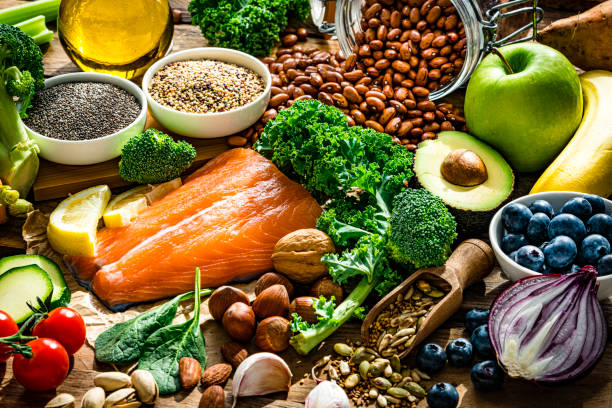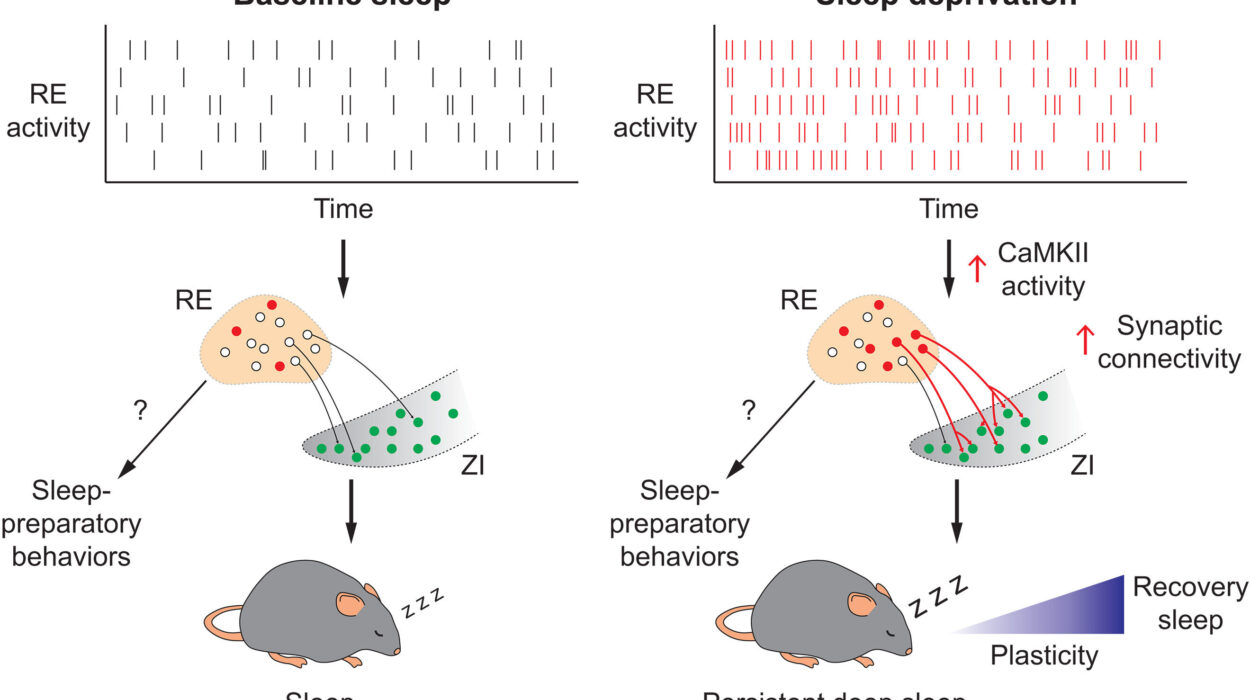Menopause is not just a phase—it’s a powerful biological shift, a transition that reshapes the female body in ways both seen and felt. It whispers through hormones, weaves itself into metabolism, and changes how the body reacts to food, exercise, and even rest. For many women, this time comes wrapped in symptoms like hot flashes, mood swings, sleep disturbances, and weight gain that seems to appear out of thin air. But one of the most potent tools a woman can use to navigate menopause isn’t found in a prescription bottle—it’s on her plate.
Food becomes medicine, strategy, and comfort during this transformative time. A well-tailored diet doesn’t just ease symptoms; it supports bone health, balances hormones, manages weight, and protects the heart and brain. The best diet for women in menopause isn’t about harsh restrictions or fleeting trends. It’s about nourishment, sustainability, and wisdom—the kind of eating that honors both the science of the body and the spirit of the woman living in it.
Hormones in Free Fall: Understanding the Body’s New Rules
The hormonal landscape of menopause is like a tide going out, revealing new terrain beneath. As estrogen and progesterone decline, a ripple effect unfolds. These hormones once acted like bodyguards—protecting bones, maintaining smooth skin, regulating moods, and ensuring that fat stayed where it was supposed to. Their absence invites chaos, making blood sugar less stable, increasing abdominal fat, slowing down metabolism, and weakening bones. The body, once fluent in balance, begins speaking a different language.
Understanding this hormonal upheaval is critical to shaping a menopause-supportive diet. It’s not simply about eating fewer calories—it’s about eating smarter. The best diet doesn’t fight the body’s changes; it works with them. It focuses on stabilizing blood sugar, reducing inflammation, and providing the nutrients that become more vital than ever before.
The Metabolism Mystery: Why Weight Gain Feels Inevitable
One of the most frustrating aspects of menopause for many women is the stealthy, stubborn weight gain. It seems to creep in uninvited, often concentrating around the belly. Part of the issue lies in a natural decline in metabolic rate that comes with age, but menopause adds fuel to the fire. Estrogen, which once played a key role in regulating body fat distribution and insulin sensitivity, dwindles. The body begins to store fat differently, often as visceral fat—dangerous fat that wraps around organs and increases the risk of cardiovascular disease and diabetes.
Yet weight gain is not a foregone conclusion. When metabolism slows, food becomes more than fuel—it becomes a way to fine-tune how the body uses energy. A menopause-friendly diet isn’t about deprivation; it’s about choosing foods that increase satiety, preserve muscle mass, and keep the metabolic fire burning.
Protein: The Queen Nutrient of the Menopause Diet
Protein takes on a new level of importance during menopause. With estrogen on the decline, women naturally begin to lose muscle mass—a condition called sarcopenia. This loss not only slows metabolism but also impacts strength, balance, and mobility. Without enough muscle, the body becomes less efficient at burning calories, leading to fat gain even when eating habits haven’t changed.
To counter this, protein needs to be a central character in every meal. But it’s not just about the amount—it’s about the timing and quality. Distributing protein intake evenly throughout the day, rather than loading it all at dinner, helps maintain muscle synthesis. Lean meats, fish, eggs, legumes, and dairy products like Greek yogurt are stellar sources. For plant-based eaters, lentils, tofu, tempeh, and quinoa offer solid protein choices. A diet rich in protein also increases satiety, helping reduce cravings and prevent mindless snacking that often sneaks in when sleep is poor or stress is high.
Carbohydrates: Not the Enemy, But a Matter of Choice
Carbohydrates have gotten a bad reputation, but during menopause, they can be powerful allies—or mischievous saboteurs. The difference lies in the type. Refined carbs like white bread, pastries, and sugary snacks cause blood sugar to spike and crash, fueling mood swings, cravings, and fat storage. Complex carbohydrates, on the other hand—like sweet potatoes, quinoa, oats, and legumes—provide steady energy, fiber, and essential nutrients.
Insulin sensitivity often declines during menopause, meaning the body isn’t as efficient at managing blood sugar. That makes it even more critical to focus on low-glycemic carbs that keep blood sugar stable and provide lasting energy. Fiber-rich carbs also support digestive health, which can be disrupted by hormonal shifts, and promote a sense of fullness that makes weight management more achievable.
Healthy Fats: Hormone Helpers and Brain Boosters
If protein is the queen of menopause nutrition, healthy fats are her trusted advisors. They play a vital role in hormone production, brain function, and heart health—all areas affected by menopause. Estrogen once offered protection against heart disease, but as levels drop, the risk increases. Omega-3 fatty acids, found in fatty fish like salmon and sardines, as well as in chia seeds, flaxseeds, and walnuts, help lower inflammation and support cardiovascular function.
Monounsaturated fats from sources like olive oil, avocados, and almonds are also critical. They keep cholesterol in check and provide long-lasting energy. Unlike the low-fat diets that were once fashionable, a menopause-friendly diet embraces fats for their ability to nourish cells, regulate mood, and support overall wellbeing. Of course, not all fats are created equal—trans fats and excessive saturated fats should still be minimized.
Bone Health: Feeding the Frame
One of estrogen’s silent roles was to maintain bone density. With its retreat, bones become vulnerable, and the risk of osteoporosis rises sharply. The best menopause diet must actively support bone health by including sufficient calcium, magnesium, phosphorus, and vitamin D.
Dairy products like yogurt and cheese are rich in calcium, but not all women tolerate or prefer dairy. In that case, leafy greens, almonds, tofu, and fortified plant milks can offer alternatives. Magnesium, essential for calcium absorption and bone strength, is found in foods like spinach, pumpkin seeds, and dark chocolate. Vitamin D, which aids in calcium absorption, can be harder to obtain through food alone, making supplementation or sensible sun exposure necessary.
Beyond minerals, protein plays a structural role in bone health. Studies show that adequate protein intake is associated with better bone density, especially when combined with strength training and a balanced intake of calcium-rich foods.
Hot Flashes and Hormonal Swings: Cooling the Fire with Food
Hot flashes are the poster child of menopause symptoms—sudden, intense waves of heat that can drench clothes and disrupt sleep. While their exact cause is complex, involving the brain’s thermoregulation and fluctuating estrogen, certain foods have been shown to trigger or soothe these episodes.
Caffeine, spicy foods, and alcohol are common culprits. Cutting back or eliminating them—especially before bedtime—can reduce the frequency and severity of hot flashes. On the flip side, plant-based estrogens, known as phytoestrogens, may help. Found in soybeans, flaxseeds, and legumes, these compounds mimic estrogen in the body and have been linked to reduced hot flashes and improved mood.
It’s not a one-size-fits-all approach, though. Each woman’s experience of menopause is unique, and it may take some experimentation to identify personal triggers and helpers. A food journal can be an invaluable tool for this detective work, shedding light on how different foods affect symptoms.
Gut Health and Menopause: The Forgotten Link
As hormones shift, so does the gut. Estrogen and progesterone influence gut motility, microbiome balance, and the integrity of the gut lining. Many women notice digestive changes during menopause, from bloating and constipation to new food sensitivities. A healthy gut not only supports digestion—it plays a role in immune function, mood regulation, and even hormone metabolism.
Fermented foods like kefir, sauerkraut, kimchi, and miso introduce beneficial bacteria that support microbiome diversity. Prebiotic-rich foods, such as garlic, onions, bananas, and asparagus, feed those friendly microbes. The fiber found in whole grains, fruits, and vegetables also acts as fuel for gut bacteria and keeps the digestive tract humming along.
By caring for the gut, women can ease many secondary symptoms of menopause, including brain fog, fatigue, and inflammation. The gut is often overlooked in menopause discussions, but it may hold the key to thriving during this hormonal rollercoaster.
Emotional Eating and Cravings: Nourishing More Than Hunger
Menopause can stir up emotions in powerful, unpredictable ways. Irritability, anxiety, sadness, and a sense of loss are common. These emotional shifts often collide with cravings, leading many women to reach for comfort foods high in sugar, salt, and fat. But emotional eating doesn’t have to be a shame-filled trap—it can be a doorway to deeper self-awareness.
Recognizing the emotional roots of cravings allows women to choose foods that both comfort and nourish. Warm, grounding meals like soups, stews, and whole grain bowls offer satiety and emotional satisfaction. Dark chocolate, in moderation, can soothe a sweet tooth while delivering antioxidants and magnesium. Mindful eating practices—eating slowly, without distractions, and truly savoring food—can transform meals from mindless to meaningful.
Food is deeply emotional, and during menopause, that relationship becomes more intimate. Honoring hunger, fullness, and emotional needs without judgment is a form of radical self-care.
Hydration and Sleep: Two Silent Pillars of a Menopause Diet
Menopausal bodies often feel drier—from the skin to the joints to the internal systems. Estrogen once helped tissues retain moisture, and its decline can lead to everything from vaginal dryness to sluggish digestion. Hydration becomes a daily discipline, not just a wellness buzzword.
Water-rich foods like cucumbers, citrus fruits, melons, and leafy greens provide fluid along with nutrients. Herbal teas, particularly those with calming properties like chamomile or peppermint, can soothe the nervous system and aid digestion. Limiting caffeine and alcohol, which dehydrate the body, supports hydration goals.
Sleep, often disrupted during menopause, has a direct impact on appetite-regulating hormones. Poor sleep leads to increased levels of ghrelin (which stimulates hunger) and decreased levels of leptin (which signals fullness). Prioritizing sleep hygiene—along with a diet that supports serotonin and melatonin production—helps stabilize cravings and energy levels. Foods rich in tryptophan, magnesium, and complex carbs can encourage better sleep and more balanced days.
Personalized Eating: The Power of Intuition and Flexibility
There is no single “perfect” menopause diet because there is no single kind of menopausal woman. Some will thrive on Mediterranean-style eating, full of fish, grains, and olive oil. Others may find relief with a plant-based approach or a low-carb, high-protein plan. The goal isn’t to fit into a specific diet—it’s to find what works for the body you live in now.
That may require tuning into how certain foods make you feel, rather than relying solely on calorie counts or macros. Do you feel energized after lunch or sluggish? Does your breakfast sustain you until noon, or are you starving by 10 a.m.? These questions offer more insight than any scale or label ever could.
Food sensitivity testing, working with a nutritionist, or simply practicing intuitive eating can help guide your journey. Flexibility, rather than rigidity, fosters long-term success. The best diet for menopause is the one that evolves with you, respects your body’s cues, and supports your well-being from the inside out.
Conclusion: Eating as Empowerment
Menopause is not the end of vitality—it’s a metamorphosis. And like all profound changes, it calls for new tools, new strategies, and new ways of caring for oneself. Diet is not about restriction; it’s about empowerment. Every bite becomes a message to your body: I see you. I honor you. I’m here for you.
With the right foods, women can move through menopause not just surviving but thriving. They can build strength, protect their hearts, sharpen their minds, and feel more at home in their bodies. The best diet for women in menopause isn’t about perfection—it’s about nourishment, resilience, and the kind of wisdom that only comes with age.
Because when women feed themselves well during menopause, they aren’t just managing symptoms—they’re writing a new chapter in their health story. One that’s full of strength, grace, and the kind of radiant power that only comes from deep, deliberate self-nourishment.






